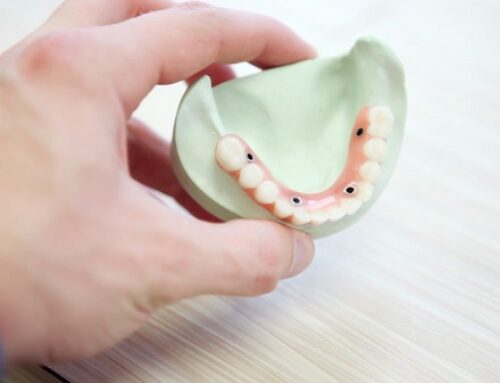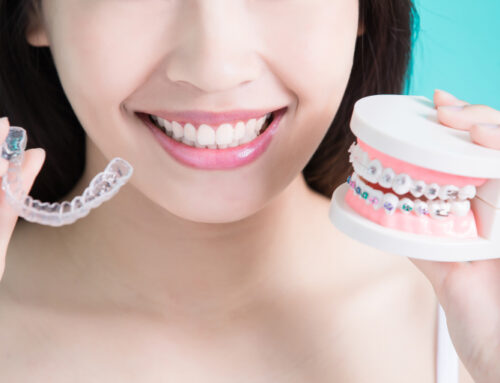How to Stop Grinding Your Teeth

Do you wake up with a sore jaw? Does your partner complain about grinding noises from your side of the bed? You may not know it by name, but you could be suffering from a behavior known as “bruxism.” It’s the grinding, clenching, or gritting of teeth that many people do without even realizing it. This habit is particularly prevalent while sleeping, which is known as sleep bruxism.
While bruxism may not sound serious at first, think of the fact that the masseter, the cheek muscle that helps you chew, is one of the strongest muscles in your body and can exert up to 600 pounds of force per square inch. That’s a lot of force put onto your molars, and when bruxism becomes severe enough, it can damage the enamel of your teeth.
Treatment for sleep bruxism:
- Nightguards: Custom-fitted dental appliances worn during sleep to protect teeth from grinding.
- Behavioral Therapy: Techniques like relaxation exercises and stress management to reduce bruxism triggers.
- Medications: Muscle relaxants or anti-anxiety drugs may be prescribed in severe cases.
- Biofeedback: Helps individuals become aware of and control muscle tension.
- Botox Injections: Injecting botulinum toxin into jaw muscles can temporarily alleviate bruxism.
- Dental Correction: Correcting misaligned teeth or bite issues through orthodontic treatments.
- Stress Management: Techniques like meditation, yoga, or therapy to address underlying anxiety.
- Avoiding Stimulants: Limiting caffeine, alcohol, and nicotine intake, especially before bedtime.
- Sleep Hygiene: Establishing a consistent sleep routine and optimizing sleep environment.
- Cognitive-Behavioral Therapy (CBT): Addresses psychological factors contributing to bruxism.
Some of the symptoms of bruxism include:
- Sore facial or jaw muscles
- Chipped or cracked teeth
- Loose or sensitive teeth
- Morning headaches
- Impressions or indentations on your tongue
What causes Bruxism?
There are many different reasons for bruxism, and it can occur in anyone at any age, either as a passing phase for children or a new development for adults. Typically, bruxism is caused by stress and anxiety. High-stress situations cause people to develop nervous, repetitive tics to relieve tension. That may include fidgeting, nail biting, yanking your hair, or grinding your teeth.
Additionally, people with hyperactive personalities, particularly those with attention deficit hyperactivity disorder (ADHD) are more prone to bruxism. Teeth grinding can be used as a release of nervous energy, and often people with ADHD have higher levels of stress.
How to Stop Bruxism
Addressing bruxism often means addressing the stressors in your life and finding outlets and coping mechanisms.
- Let go of negativity: When you go to sleep with a mind full of negative thoughts, you’re more likely to release that stress by grinding your teeth. Try keeping a notepad by your bed, and if you feel anxiety or stress before going to sleep, take a few minutes to write those feelings onto paper and get them out of your head. This process can help people release the recurring negative thoughts that may be causing bruxism.
- Practice mindful awareness: They say that knowing is half the battle, so when you start to drift off to sleep, think about the tension in your jaw and consciously work to loosen it. Sometimes teeth clenching is conditioned to occur as soon as your put your head down to rest. If you’re aware of this, you’re more likely to be able to stop it.
- Consider a mouthguard: If your bruxism persists, talk to your dentist at Pearl Dental P.C. about getting a custom fitted mouthguard to wear to sleep. While you should still practice mindful awareness and de-stressing exercises, a mouthguard will protect your teeth even when stress is unavoidable, and your bruxism flares up.
If you are struggling with bruxism we can help. Contact Pearl Dental P.C. today and schedule your initial consultation.






